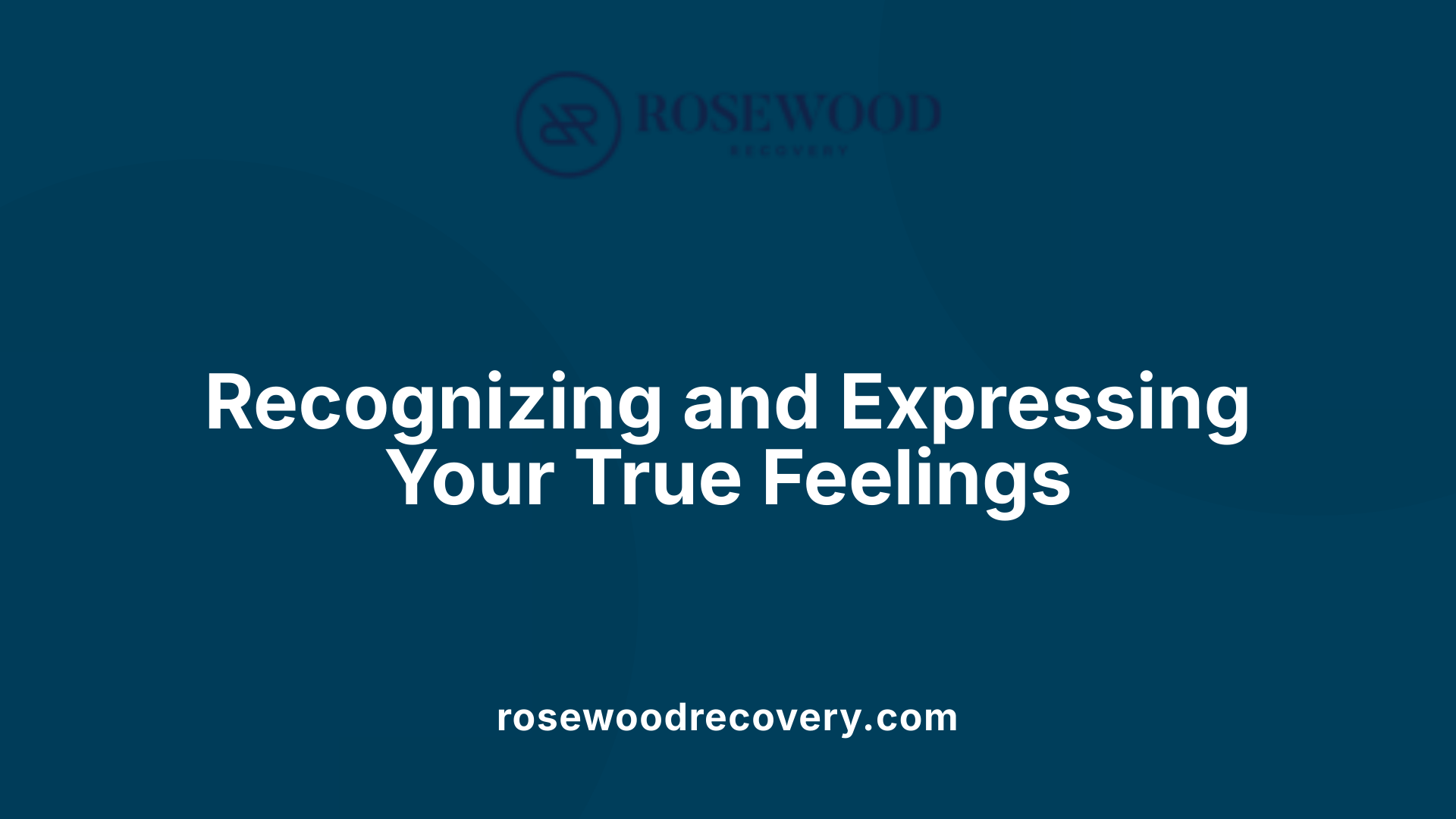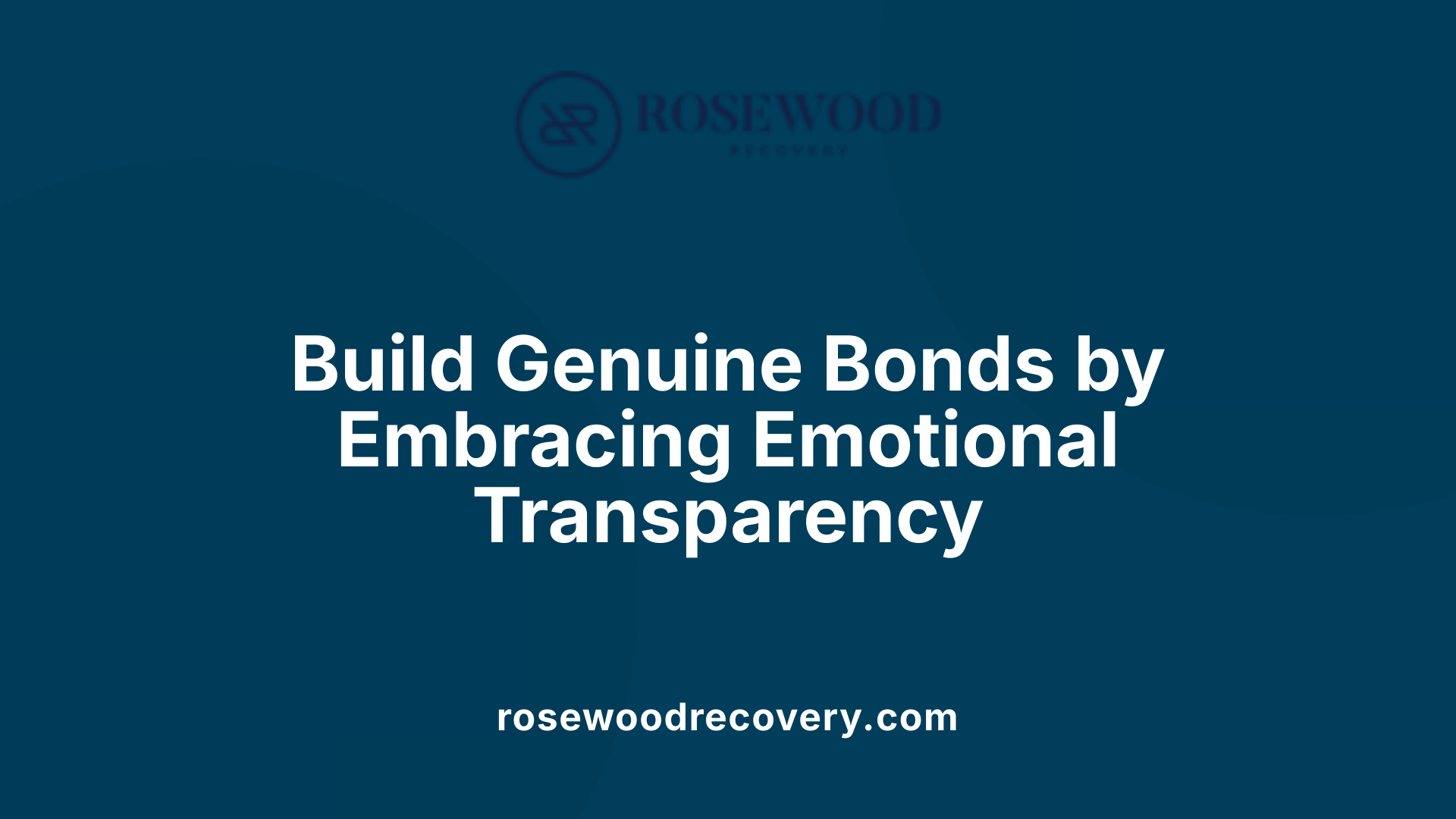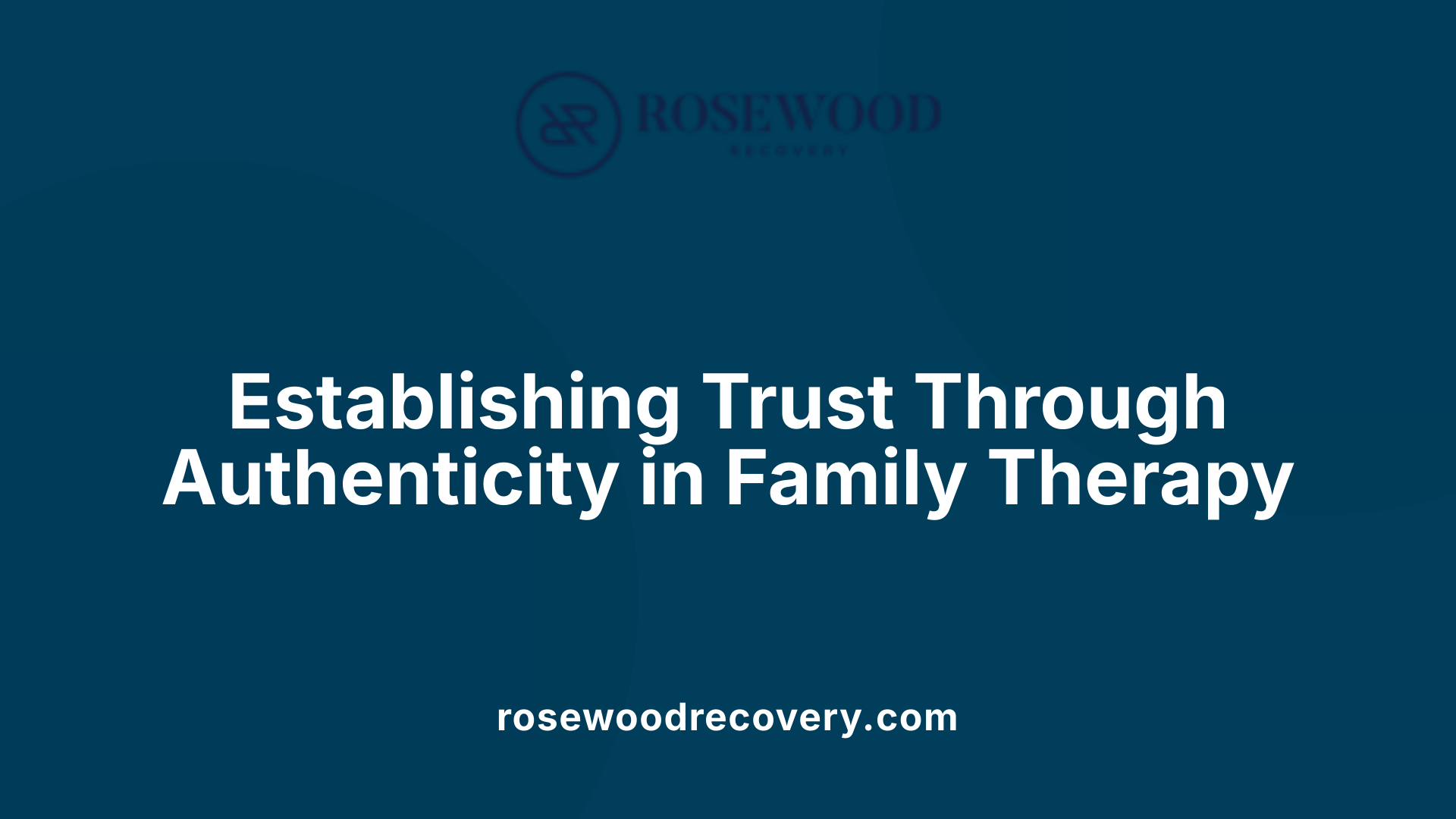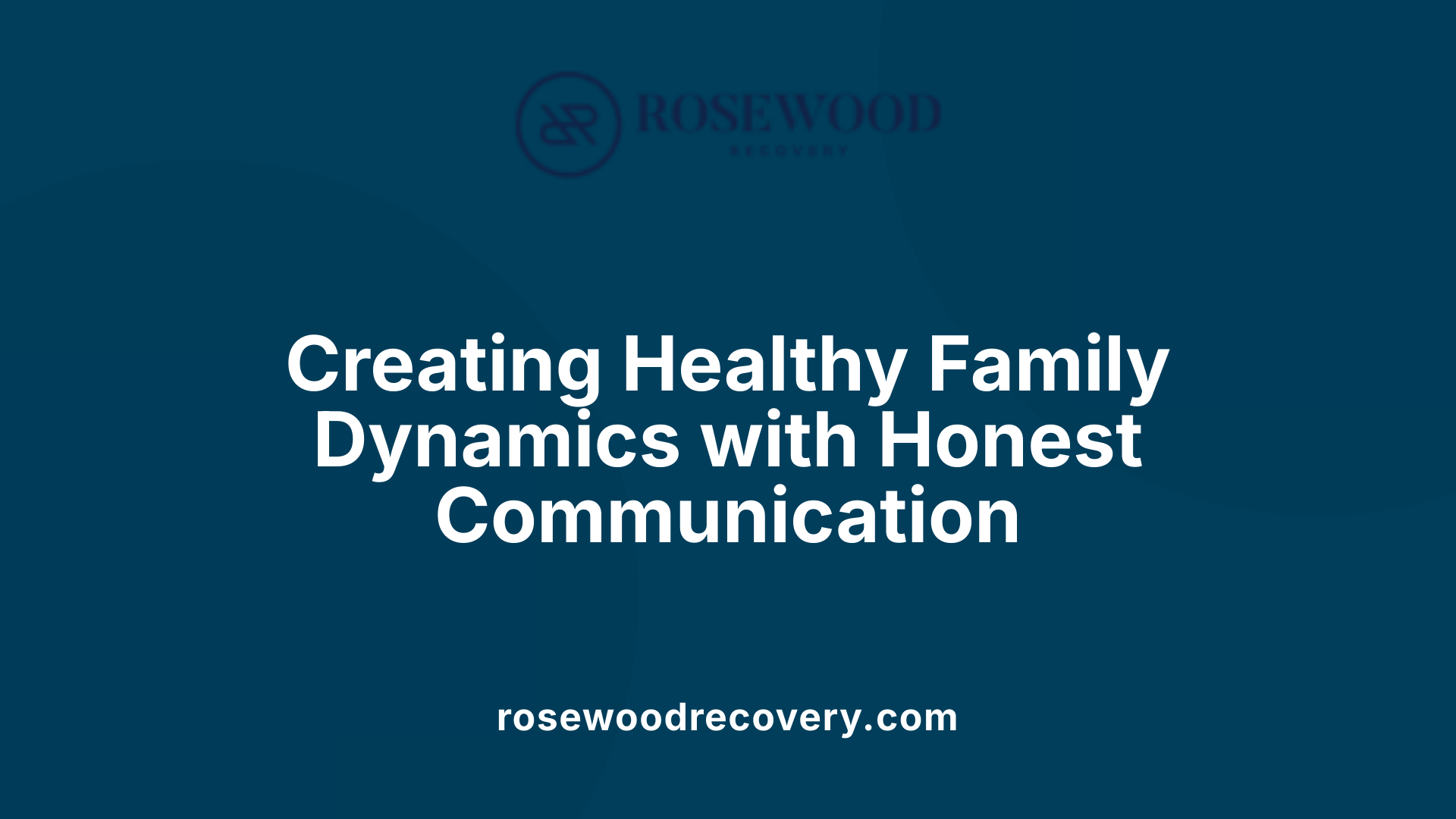Understanding Emotional Honesty's Central Role
Emotional honesty is the cornerstone of effective family therapy, fostering trust, deepening relationships, and promoting growth. This article explores the importance of authentic communication within families and how it influences therapy outcomes, relationship healing, and personal development.
Defining Emotional Honesty in Family Contexts
What is emotional honesty?
Emotional honesty involves genuinely sharing and expressing our feelings with others while remaining open and receptive to theirs without judgment, criticism, or defensiveness. It requires creating a safe space where feelings can be communicated openly, fostering trust, understanding, and connection.
Being emotionally honest also means listening with empathy and respect, allowing others to feel heard and valued without trying to fix or dismiss their emotions. Cultivating such honesty promotes deeper relationships, cooperation, and mutual respect within families, classrooms, or communities.
Ultimately, emotional honesty is about meaningful dialogue that nurtures belonging, promotes growth, and builds a foundation of trust and authenticity.
Characteristics of emotional honesty in relationships
In family settings, emotional honesty entails several specific traits:
- Authenticity: Being true about one’s feelings, not hiding or avoiding them.
- Vulnerability: Willingness to share fears, anger, or sadness despite potential discomfort.
- Respect for others' emotions: Recognizing and validating the feelings of family members.
- Consistency: Maintaining honesty over time, even during conflicts.
These characteristics create an environment where family members feel safe to express themselves and develop deeper emotional bonds.
How emotional honesty fosters trust and connection
When family members practice emotional honesty, it significantly enhances trust. Sharing feelings openly shows that one values honesty and respects others’ experiences.
This authentic communication nurtures emotional intimacy, which is essential for healthy relationships. It encourages mutual understanding, reduces misunderstandings, and prevents the buildup of resentment or frustration.
Additionally, emotional honesty in families models healthy communication skills, teaching children how to openly express their own feelings. This foundational skill supports their future relationships and personal growth.
Creating a space where honesty is supported and valued leads to stronger, more resilient family bonds, rooted in genuine trust and profound connection.
The Critical Role of Honesty in Therapeutic Settings

Why is honesty important in therapy?
Honesty is a cornerstone of effective therapy because it creates a foundation of trust between clients and therapists. When clients are truthful, they establish a safe environment where they feel comfortable sharing their deepest thoughts, fears, and emotions without fear of judgment. This openness allows therapists to gain a clear understanding of the issues a client faces, which is crucial for developing tailored treatment strategies.
Honest communication also encourages deeper self-exploration. Clients confront their true feelings and beliefs, including those they might be afraid to admit. Such sincerity helps uncover root causes of psychological struggles and emotional barriers, making healing possible. Moreover, when clients are transparent, therapists can provide honest feedback and guidance, which is essential for progress.
The therapeutic relationship is strengthened when honesty is practiced consistently. Feeling respected and heard fosters mutual trust, which motivates clients to engage more fully in their journey. Conversely, withholding information or hiding true feelings can hinder progress, create misunderstandings, and even lead to setbacks.
Ultimately, honesty in therapy enhances its effectiveness by nurturing authentic connections and promoting self-awareness. It enables clients to confront and accept their true selves, paving the way for meaningful growth and lasting change.
What Does Emotional Honesty Look Like in Practice?

Manifestations of emotional honesty
Emotional honesty manifests when individuals openly acknowledge and share their authentic feelings, even if they are uncomfortable or difficult. This means recognizing emotions like sadness, anger, jealousy, or loneliness without denial or suppression. People practicing emotional honesty do not mask their true feelings to avoid conflict or seek approval. Instead, they allow themselves to feel deeply and express these feelings in a communication that is sincere and transparent.
Recognizing and expressing genuine feelings
A key aspect of emotional honesty is awareness—being able to identify what one truly feels at any moment. This involves listening to internal cues and distinguishing between surface emotions and deeper, genuine feelings. For example, someone might feel anger but recognize that beneath it, there is hurt or fear. Once these feelings are identified, expressing them clearly and respectfully becomes possible. This honesty fosters trust and authenticity in relationships, allowing others to understand and respond to the real self.
Role of self-awareness and emotional intelligence
Developing emotional honesty requires high levels of self-awareness and emotional intelligence. Self-awareness involves understanding one’s internal landscape—knowing why certain feelings arise and how past experiences shape current reactions. Emotional intelligence helps individuals manage their emotions effectively and articulate them without shame or defensiveness. When people use emotional intelligence, they can share their feelings in ways that promote understanding rather than conflict.
In practice, emotional honesty might look like a person admitting they are upset after a disagreement, explaining why they feel hurt, and listening to their partner's perspective. It also involves recognizing when to share feelings and when to hold back to preserve emotional safety. Practicing mindfulness, journaling, and reflection can enhance understanding of one’s internal state, making honest expression more natural.
Ultimately, emotional honesty is a continuous journey of self-discovery and openness. Its practice strengthens relationships by fostering genuine connection, mutual respect, and emotional intimacy. Regularly acknowledging and expressing true feelings helps create an environment where authenticity is valued and emotional health is nurtured.
Barriers to Emotional Honesty and How to Overcome Them
Why is honesty important in family relationships?
Honesty helps to build trust, which is the foundation of any healthy relationship. It also maintains integrity by staying true to one's values and principles.
Common obstacles in family and therapy settings
In family engagements and therapy environments, several barriers can impede emotional honesty. These include fear of judgment, shame, cultural norms, and a tendency to hide true feelings to avoid conflicts or rejection.
Fear of judgment or embarrassment is a significant deterrent, causing individuals to conceal their emotions to protect themselves from criticism. Cultural norms might discourage expressing vulnerability, associating openness with weakness. Additionally, past negative experiences or fear of damaging relationships can foster emotional suppression.
The impact? These barriers create superficial interactions, hinder genuine connection, and prevent effective healing and understanding within families.
Strategies to foster honesty, safety, and trust
Overcoming these obstacles requires intentional effort and supportive environments. Creating a safe space is vital. Therapists and family members should emphasize confidentiality, normalize a wide range of feelings, and validate each person's experiences.
Practicing empathetic communication and active listening can bolster trust. Encouraging gradual sharing helps build comfort over time, especially for those initially reluctant to open up. Using non-judgmental language and reinforcing that all feelings are valid further reduces shame.
Self-awareness practices, like reflection and emotional literacy, enable individuals to recognize and acknowledge their true feelings. When family members or clients demonstrate vulnerability and honesty, it models healthy behavior and helps foster mutual respect.
In therapy, professionals can employ techniques such as emotional validation, role-playing, and open-ended questions to encourage honest dialogues. Similarly, outside therapy, cultivating honesty through consistent, authentic communication reinforces trust and deepens emotional bonds.
By addressing these barriers with patience, understanding, and empathy, families and individuals can develop stronger, more genuine relationships.
| Aspect | Approach | Purpose |
|---|---|---|
| Overcoming judgment fears | Normalize feelings, confidentiality | Encourage openness without fear of criticism |
| Addressing cultural norms | Cultural sensitivity, gradual exposure | Promote acceptance of emotional expression |
| Building trust | Empathetic listening, consistency | Establish reliable, safe channels for sharing |
| Emotional self-awareness | Reflection, emotional literacy | Help identify true feelings and needs |
Embracing honesty, despite challenges, leads to healthier relationships characterized by trust, understanding, and deeper emotional connections, ultimately fostering resilience and growth within families.
Fostering Emotional Honesty for Deeper Family Connections

What does emotional honesty look like?
Emotional honesty means being open about your true feelings and sharing them sincerely with others. It involves acknowledging difficult emotions such as loneliness, anger, or pain instead of hiding or suppressing them. This openness creates a genuine connection with loved ones and helps build trust.
Practicing emotional honesty requires awareness of different parts of ourselves. These include the higher self, which understands unity and truth; the lower self, which seeks separation and protection; and the mask self, which wears façades to avoid vulnerability. Recognizing how these parts influence our reactions enables us to be more authentic.
Developing emotional honesty often involves reflective practices like journaling, meditation, or mindful awareness. These tools help uncover true feelings and examine tendencies to mask or bypass emotions, sometimes as learned behaviors from childhood or cultural norms.
Cultivating self-compassion during this process is essential. When we gently accept our feelings without judgment, it fosters healing and deeper self-understanding. As we become more honest with ourselves, our capacity to share authentically with others grows.
Ultimately, emotional honesty is an ongoing journey of self-awareness. It promotes not only personal growth but also more meaningful, trusting connections within families and relationships. This honesty creates a foundation for open dialogue, mutual respect, and lasting intimacy.
The Ethical Foundations of Emotional Honesty in Family Therapy

Why is honesty important in therapy?
Honesty forms the cornerstone of effective therapy because it helps establish a relationship built on trust and authenticity. When clients are truthful about their feelings, thoughts, and experiences, therapists can better understand the root causes of issues and tailor the intervention accordingly. Honest communication creates a safe space where clients feel respected and heard, which encourages deeper emotional exploration.
Therapists rely on truthful disclosures to craft personalized treatment plans that genuinely address individual needs. This openness also helps clients confront barriers like shame or fear, making room for growth and healing. Providing honest feedback and discussing difficult topics openly strengthen the therapeutic relationship, making it a collaborative effort towards positive change.
In essence, honesty in therapy not only fosters trust but also enhances self-awareness and emotional clarity. It allows for genuine connection and the effective resolution of underlying issues, leading to more meaningful and lasting progress.
Building a Systemic Approach Through Emotional Honesty
 Emotional honesty plays a vital role in creating healthy family dynamics and meaningful relationships. It involves openly acknowledging and sharing genuine feelings, even when those emotions are difficult or uncomfortable. This honesty is not about oversharing but about being true to oneself and expressing feelings in a mature and responsible way.
Emotional honesty plays a vital role in creating healthy family dynamics and meaningful relationships. It involves openly acknowledging and sharing genuine feelings, even when those emotions are difficult or uncomfortable. This honesty is not about oversharing but about being true to oneself and expressing feelings in a mature and responsible way.
In practice, emotional honesty includes recognizing the different parts of ourselves—the higher self that perceives unity, the lower self that seeks separation, and the mask self that creates protective façades. Being aware of how these aspects influence our reactions helps us own our feelings fully. Techniques such as journaling, meditation, and mindful reflection support this process by encouraging self-awareness and compassion. As we explore our inner experiences, we learn to accept and express complex emotions like loneliness, anger, or pain without self-judgment.
Building emotional honesty also involves understanding and addressing multigenerational influences. Family legacies, inherited values, and unresolved conflicts shape how we communicate and relate. Recognizing these patterns allows us to break cycles of emotional dishonesty and promote fairness, responsibility, and accountability within family relationships.
Addressing destructive entitlement—the tendency to claim unjustified rights based on past injustices—is crucial in fostering trust and respect. When family members acknowledge each other's contributions and respect boundaries, they create a foundation of trustworthiness and fairness.
In therapy, strategies such as exploring multigenerational influences, promoting fairness and responsibility, and addressing entitlement help clients develop emotional honesty. This process enhances trust, reduces conflicts, and builds stronger, more authentic connections.
In summary, emotional honesty involves genuine self-awareness, responsible expression of feelings, and an understanding of family influences. As family members practice openness and responsibility, they cultivate trust and fairness, leading to healthier relationships and a more resilient family system.
Fostering Trust and Authenticity in Family Relationships
Emotional honesty plays a vital role in cultivating trust, understanding, and genuine connection within families. It enables individuals to express their true feelings and needs, which is fundamental for resolving conflicts, setting healthy boundaries, and nurturing intimacy. Therapists and family members alike must prioritize creating environments of safety and openness, recognizing that honesty fosters mutual respect and transparency. By embracing emotional honesty, families can move beyond superficial interactions and foster relationships rooted in authenticity and trust, ultimately leading to healthier, more resilient bonds. In family therapy, cultivating this honesty is not just a goal but a vital process that supports personal growth, relational healing, and the development of a caring, transparent family system.
References
- The Crucial Role of Honesty in Therapy: Why It's Important to Keep It ...
- Emotional Honesty: What It Is And Why It Is Important
- The Importance of Honesty in Therapy: Navigating Tough ...
- The Path to Openness: Cultivating Honest Family Dialogues
- The Cost and Benefits of Emotional Honesty | Psychology Today
- Effective communication strategies for family therapy sessions
- The Importance of Honesty in Therapy
- Anxiety About Emotional Honesty With Family
- Couples therapy and the challenges of building trust, fairness, and ...
- How Emotional Honesty Can Help in Your Relationships

.jpeg)
.jpeg)

